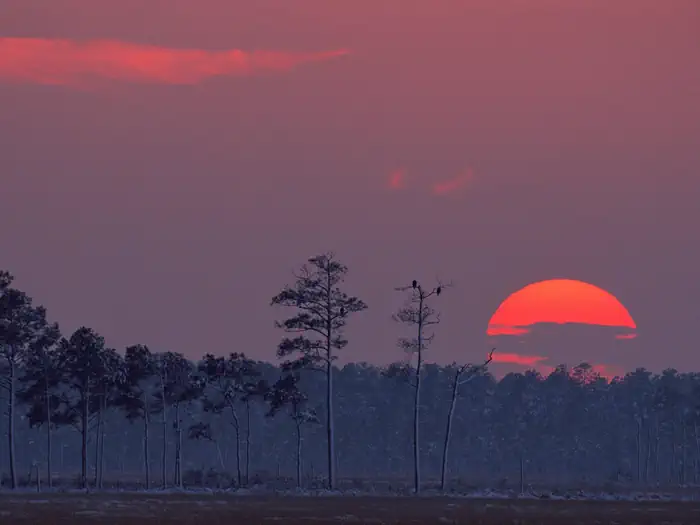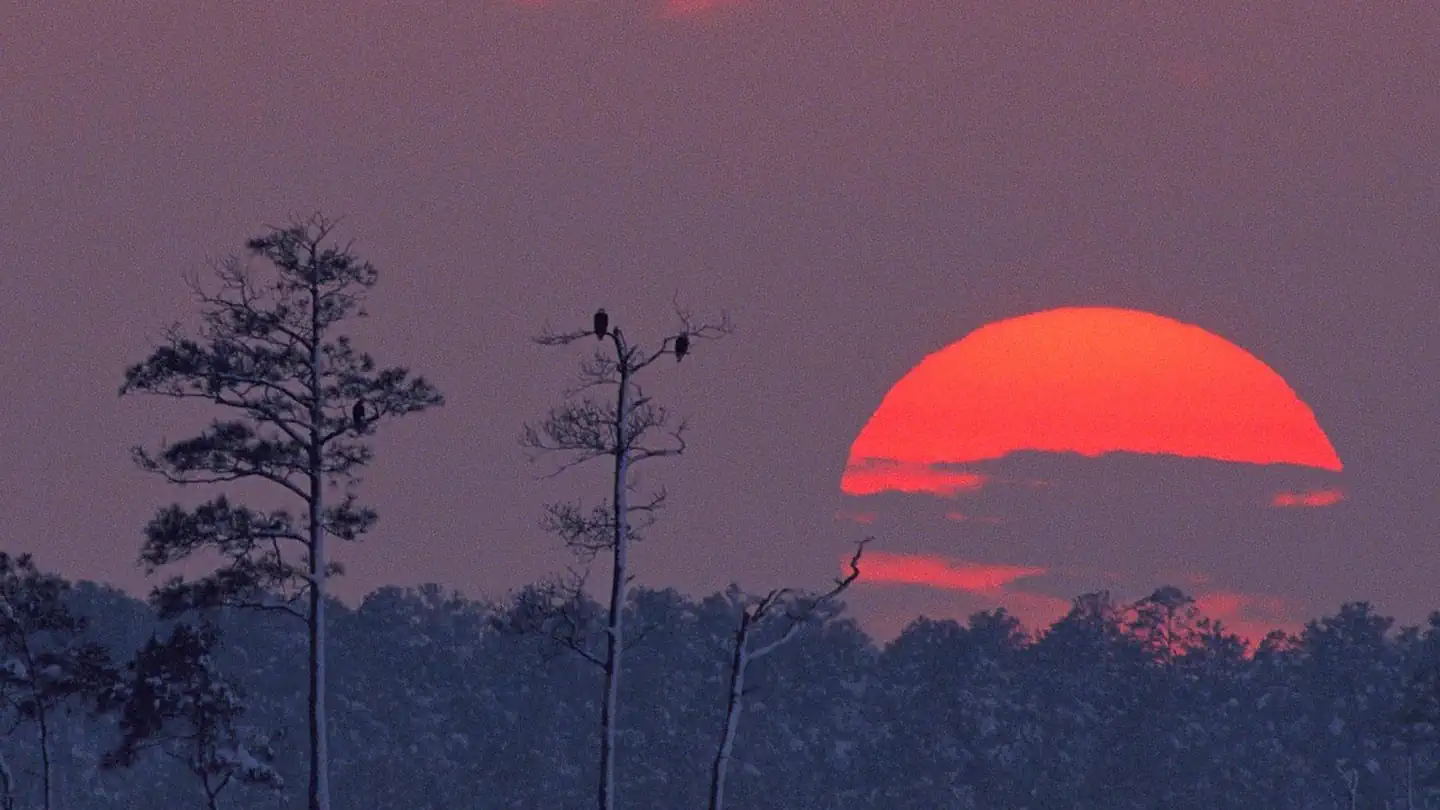Blackwater National Wildlife Refuge
Overview
Blackwater National Wildlife Refuge is managed by Fish and Wildlife Service and is located near Cambridge, Maryland.
Blackwater National Wildlife Refuge (NWR) was established in 1933 as a waterfowl sanctuary for birds migrating along the Atlantic Flyway, and currently encompasses more than 32,000 acres. Blackwater NWR is home to an incredible amount of plant and animal diversity in its three major habitats – forest, marsh and shallow water. The refuge contains one-third of Maryland's tidal wetlands, which makes it an ecologically important area within the state. These wetlands also provide storm protection to lower Dorchester County, including the town of Cambridge. Blackwater NWR is recognized as a "Wetland of International Importance" by the Ramsar Convention and was named a priority wetland in the North American Waterfowl Management Plan. In addition, Blackwater NWR has been designated as an Internationally Important Bird Area.
Blackwater NWR is home to the largest natural population of formerly endangered Delmarva peninsula fox squirrels and is also home to the largest breeding population of American bald eagles on the East Coast, north of Florida.
The refuge has been referred to as the "Everglades of the North," and has been called one of the "Last Great Places" by the Nature Conservancy.
Things to Do at Blackwater National Wildlife Refuge
Permits & Passes
Special permits are required for certain activities. Reserve your permits in advance to ensure access to popular areas.
- Blackwater National Wildlife Refuge Deer Hunt Permits
- Blackwater National Wildlife Refuge Turkey Hunt Lottery and Permits
- Blackwater National Wildlife Refuge Waterfowl Hunt Permits
Recreation Activities
Popular activities at Blackwater National Wildlife Refuge include:
Nearby Activities
- Auto Touring
- Biking
- Birding
- Boating
- Educational Programs
- Environmental Education
- Fishing
- Hiking
- Hunting
- Interpretive Programs
- Motor Boat
- Non-Motorized Boating
- Paddling
- Photography
- Visitor Center
- Wildlife Viewing
Plan Your Visit
Reservation Tips
Blackwater National Wildlife Refuge is a popular destination. Check individual facility pages for specific booking windows and availability.
Getting There
The refuge is located approximately 12 miles south of the town of Cambridge on the Eastern Shore of Maryland. From Route 50 in Cambridge take Route 16 West (Church Creek Road) until you reach the flashing light (about 5 miles), then turn left onto Egypt Road. Follow Egypt road for approximately 7 miles and it will dead end at Key Wallace Drive. Turn left for the Wildlife Drive (0.2 miles), or turn right for the visitor center (1.25 miles).
GPS ADVISORY: if you are using GPS navigation to find the refuge, you will need to enter our physical address (see above). This will bring you to the Blackwater NWR Visitor Center. DO NOT USE "BLACKWATER NATIONAL WILDLIFE REFUGE"!
Note: see this document for dates that Wildlife Drive and other trails will be closed during the 2024-25 hunting season.
GPS Coordinates: 38.44479570000000, -76.11946800000000
Contact & Resources
Phone: 410-228-2677
Additional Information:

